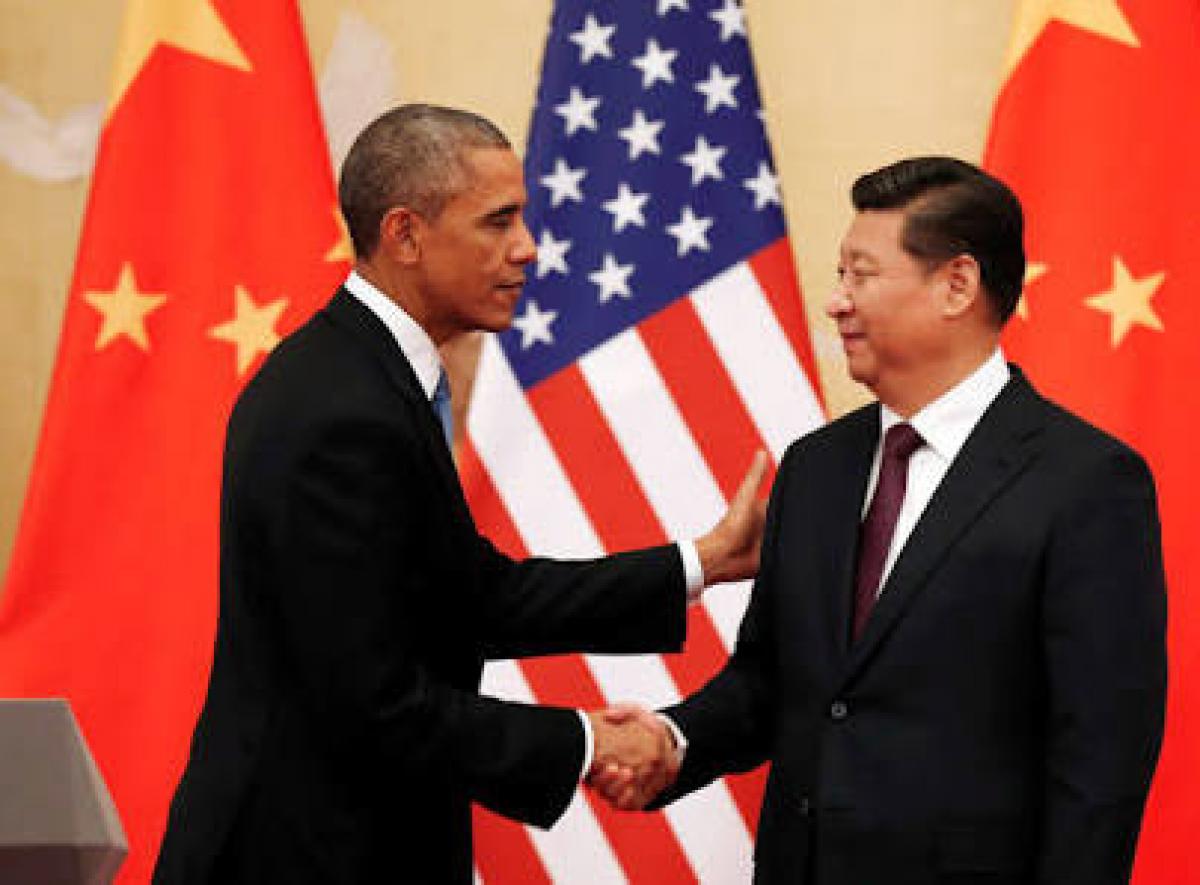Live
- Target Kohli’s body, his front pads to put him on back-foot: Healy’s advice to Oz quicks
- LIC accused of thrusting Hindi
- Will make Warangal a la Hyderabad
- Will showcase Indiramma Rajyam: CM
- HC orders attachment of Himachal Bhawan
- Plane from Vedic era, not Wright Brothers: UP Guv
- Trump fancies himself a skilled dealmaker, but ME peace might be beyond him
- Six Useful Strategies to Control Your Heart During the Pollution Season
- Phalodi Satta Bazar Predicts Close Race in Maharashtra Assembly Election 2024
- Federer Pays Heartfelt Tribute to Nadal Ahead of His Retirement: "An Epic Career"
Just In

China\'s dissidents have urged US President Barack Obama to confront his Chinese counterpart Xi Jinping over the latter\'s worst human rights crisis since the 1989 Tiananmen crackdown, during his visit to the country for G20 economic summit in Hangzhou this week.
Washington:China's dissidents have urged US President Barack Obama to confront his Chinese counterpart Xi Jinping over the latter's worst human rights crisis since the 1989 Tiananmen crackdown, during his visit to the country for G20 economic summit in Hangzhou this week.
During a meeting at the White House on Tuesday, prominent Chinese activists told Susan Rice, Obama's national security adviser, that Xi had presided over a dramatic offensive against opponents of the Communist party since taking power in late 2012.
Teng Biao, an exiled human rights lawyer who was among those invited to address Rice, told the Guardian that he had called on Obama to publicly speak out on his final presidential visit to Asia, the Guardian reported.
"China is experiencing its worst human rights crackdown since the Tiananmen massacre in 1989," Teng said.
"Especially since Xi came to power, many human rights lawyers and activists were detained and disappeared; many, many NGOs were shut down; and other civil society organisations, universities, media, internet, Christian churches and other religious groups were also targeted. It is obvious that the Chinese government has violated human rights and the current situation is very, very worrying," he said.
World leaders will fly to Hangzhou, the capital of Zhejiang province, later this week to attend the two-day summit which kicks off on Sunday.
Obama and Xi will meet for the first time on Saturday for what the White House called "an extensive bilateral meeting".
Officials said the pair would then share a "small dinner" on Saturday night.
Speaking on Monday, Ben Rhodes, Obama's deputy national security adviser, said the US President would use his time with Xi to review "all of the issues that have been front and centre in the US-China relationship for the last seven and a half years" including flash-points such as the South China Sea, cyber espionage and "our longstanding differences on human rights".
Teng, who fled China in September 2014 and lives in exile in New Jersey with his family, said White House officials had summoned a small group of activists "to talk about the G20 summit and what Obama should do when he is in Hangzhou".
Zhang Qing, wife of the democracy activist Guo Feixong, who has been on hunger strike in a prison in China, was also present.
Speaking after the meeting, which lasted about 80 minutes, Teng said he had told Rice he hoped Obama would publicly call for the release of a series of "political prisoners" and activists.
They included the jailed Uighur scholar Ilham Tohti and Nobel laureate Liu Xiaobo as well as Li Heping and Wang Quanzhang, two civil rights lawyers caught up in a Communist party crackdown on their trade.
Teng also urged Obama to highlight the plight of dissidents being held in prisons in Hangzhou, the G20's host city, and to draw attention to local political activists who have been placed under house arrest to prevent them speaking out ahead of the summit.
Rice had not indicated to her guests how Obama planned to handle human rights issues during his visit to China, Teng added.
Political opponents also urged Obama to confront Xi over human rights abuses, although an anticipated joint announcement that the US and China will ratify the Paris climate agreement makes it unlikely he will be overly critical of his hosts.
In a statement, Republican senator Marco Rubio said: "I am glad the Obama administration is meeting with men and women who can speak authoritatively about the Chinese government's gross human rights abuses, but I urge the President to meet these freedom fighters himself and then press Xi directly at the G20 summit regarding his government's failure to uphold the rule of law and its violations of the Chinese people's basic human rights."
Chris Smith, a Republican congressman who chairs the congressional-executive commission on China, said: "[Obama] should consider doing something radically different on his last trip to China, something that will give hope to Chinese dissidents and freedom advocates. Mildly raising human rights issues is important, but not enough anymore."

© 2024 Hyderabad Media House Limited/The Hans India. All rights reserved. Powered by hocalwire.com







